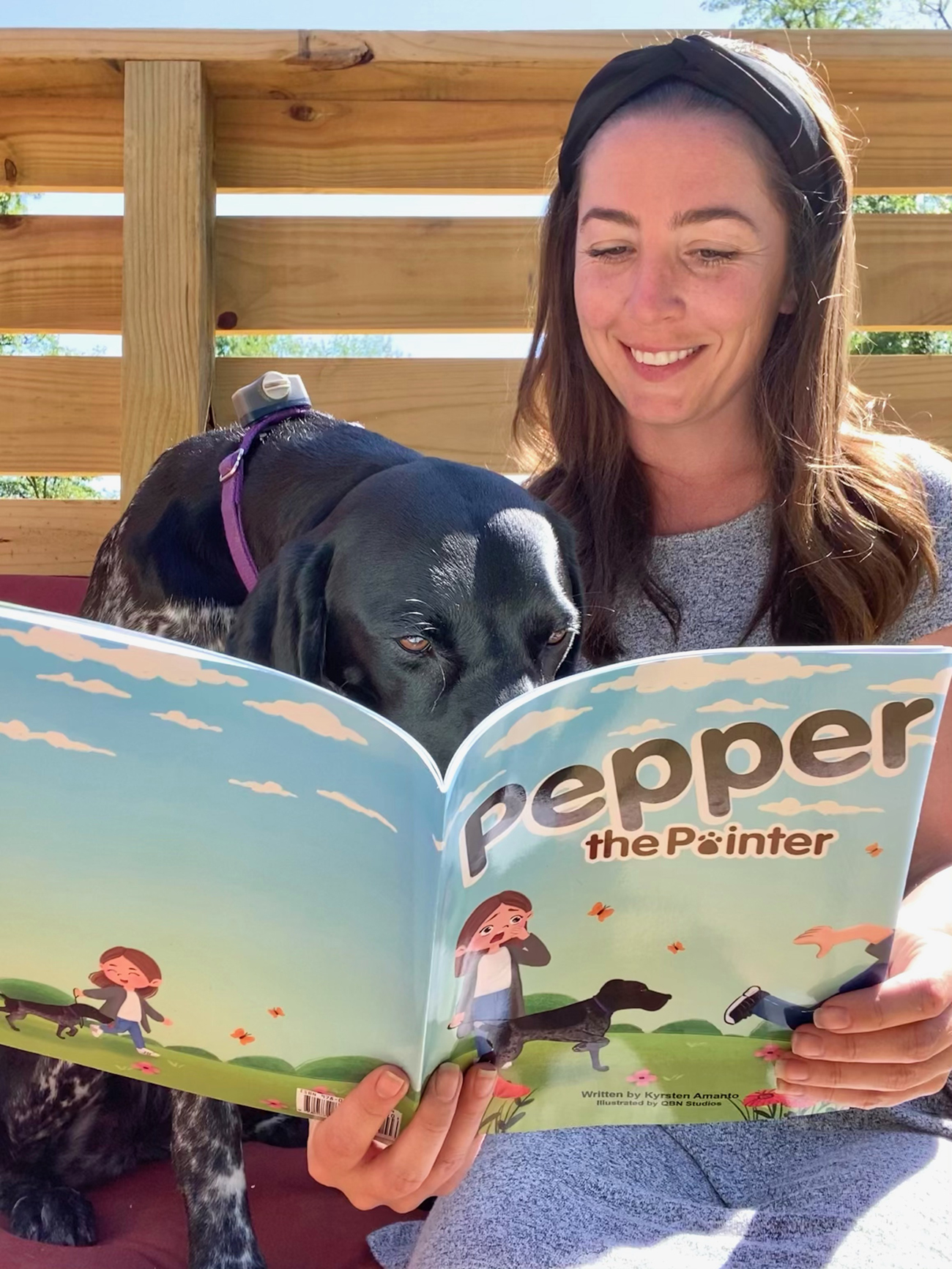
Kyrsten Amanto, a kindergarten teacher at St. Maximilian Kolbe School in Wester Chester, wrote “Pepper the Pointer” — inspired by her own dog (left) — to encourage children to practice kindness and compassion amid COVID-related social isolation. (Photo courtesy of Kyrsten Amanto)
An archdiocesan educator has just published a children’s book, thanks to insights learned from COVID – and some timely inspiration from her dog.
Kyrsten Amanto, a kindergarten teacher at St. Maximilian Kolbe School in West Chester, recently released “Pepper the Pointer,” which follows the adventures of Kyky and her outgoing canine. Available through Barnes & Noble, Amazon and Target, the story explores how reserved Kyky is transformed by Pepper, who engages with others and thereby imparts valuable lessons.
The idea for the project emerged in the classroom, as Amanto watched her students grapple with the pandemic’s counterintuitive social distancing protocols.
Limited to “their safe area of six feet of space,” the children had to override their natural bent for close interaction. Even when a classmate dropped a book or crayon, said Amanto, students had to refrain from lending a hand to reduce the risk of spreading the coronavirus.
“I would tell them, ‘I appreciate that you want to help, but please don’t touch their things,’” said Amanto.
As the pandemic progressed, however, she realized her students were becoming “accustomed to staying in their own space and not going out to help others.”
Concerned the behavior would become habitual, especially at such an impressionable age, Amanto pondered ways she could cultivate COVID-friendly compassion and sensitivity in her students.
As it turned out, the answer was right at her feet — and wagging its tail.
[tower]
Sitting at home one winter day amid news reports of the pandemic and civil unrest, Amanto began talking to Pepper, her two-year-old German Shorthaired Pointer, “in that silly little voice all dog owners use.” A chance rhyme took shape, and Amanto suddenly thought, “Hold on; this might go somewhere.”
Since “dogs always point to the happiness in life,” Amanto was hopeful that casting her own in a story would prompt her students to see that “even though something doesn’t directly affect you, you should still help others and get involved.”
As she worked with illustrators at QBN Studios to refine the book’s images, Amanto turned to her students for feedback.
“They were my little focus group,” she said. “I would put up drafts on the smartboard and asked what they thought the image meant. Sometimes they didn’t get it, and I would give it back to the illustrator.”
The students were also “the first to read the book,” with the real-life Pepper on hand (or paw) to underscore the story’s moral.
“Each of them had a mini bone, and they could feed Pepper after they told me one act of kindness they could do for someone else,” said Amanto.
As COVID restrictions are eased, she remains hopeful that her students – whom she describes as “resilient” — will continue to look for opportunities to help others.
Yet there are no plans for a Pepper sequel just yet, she added.
“I have some ideas, but right now, this message is still relevant,” said Amnato.
PREVIOUS: Ceremony at St. Charles Seminary marks fellowship, transition
NEXT: Archdiocesan parishes see guidelines to lift COVID restrictions


Share this story